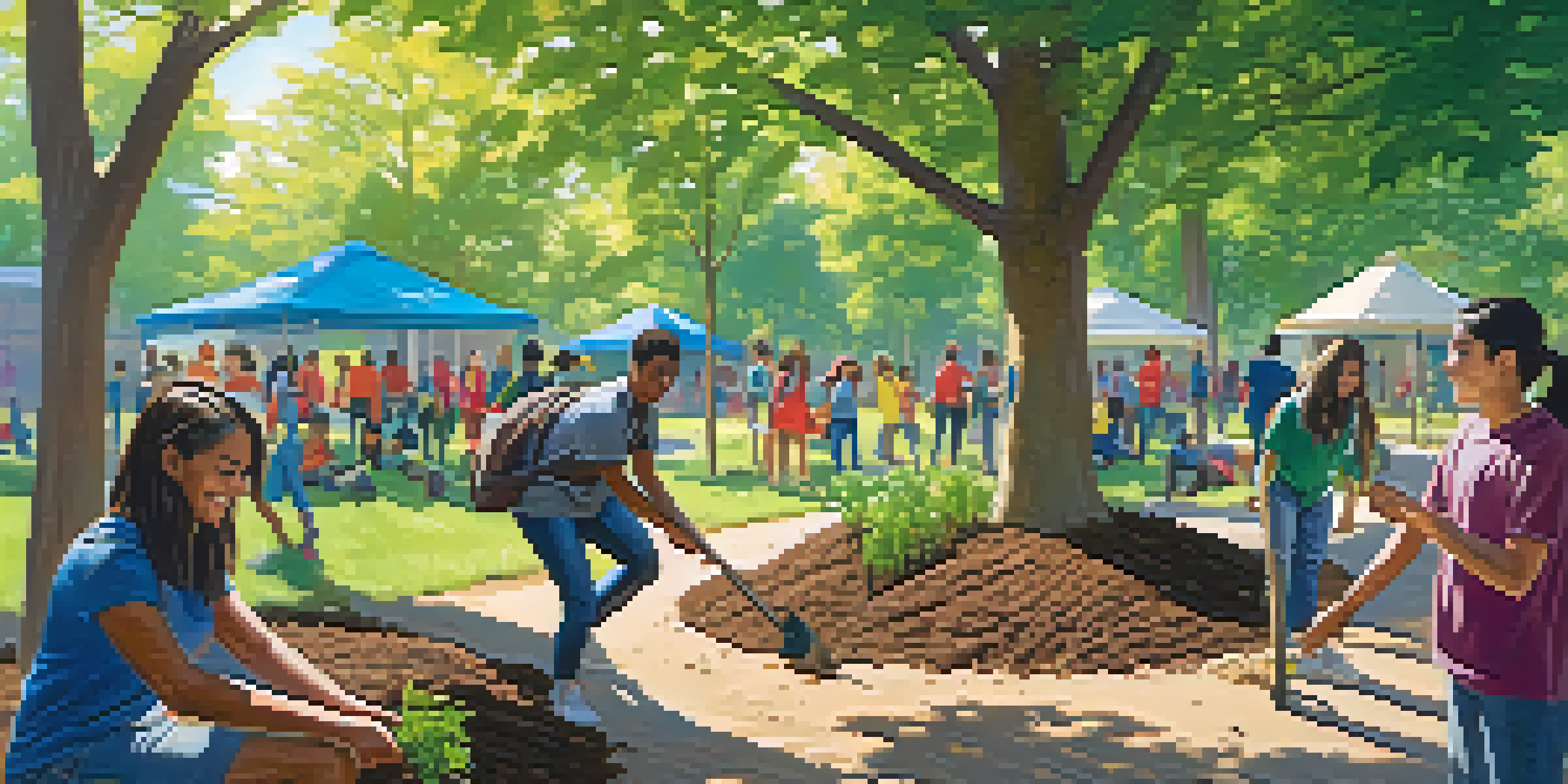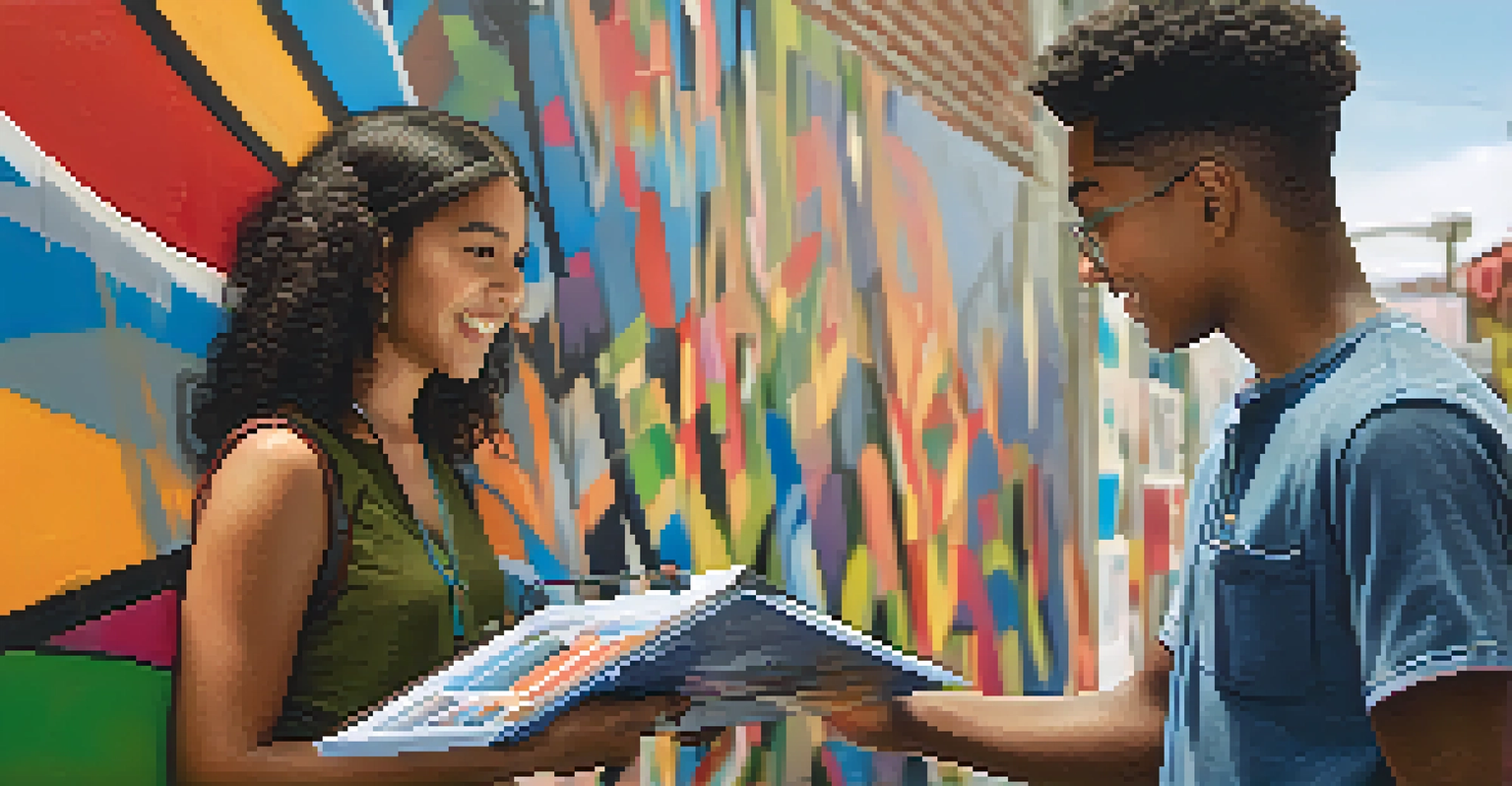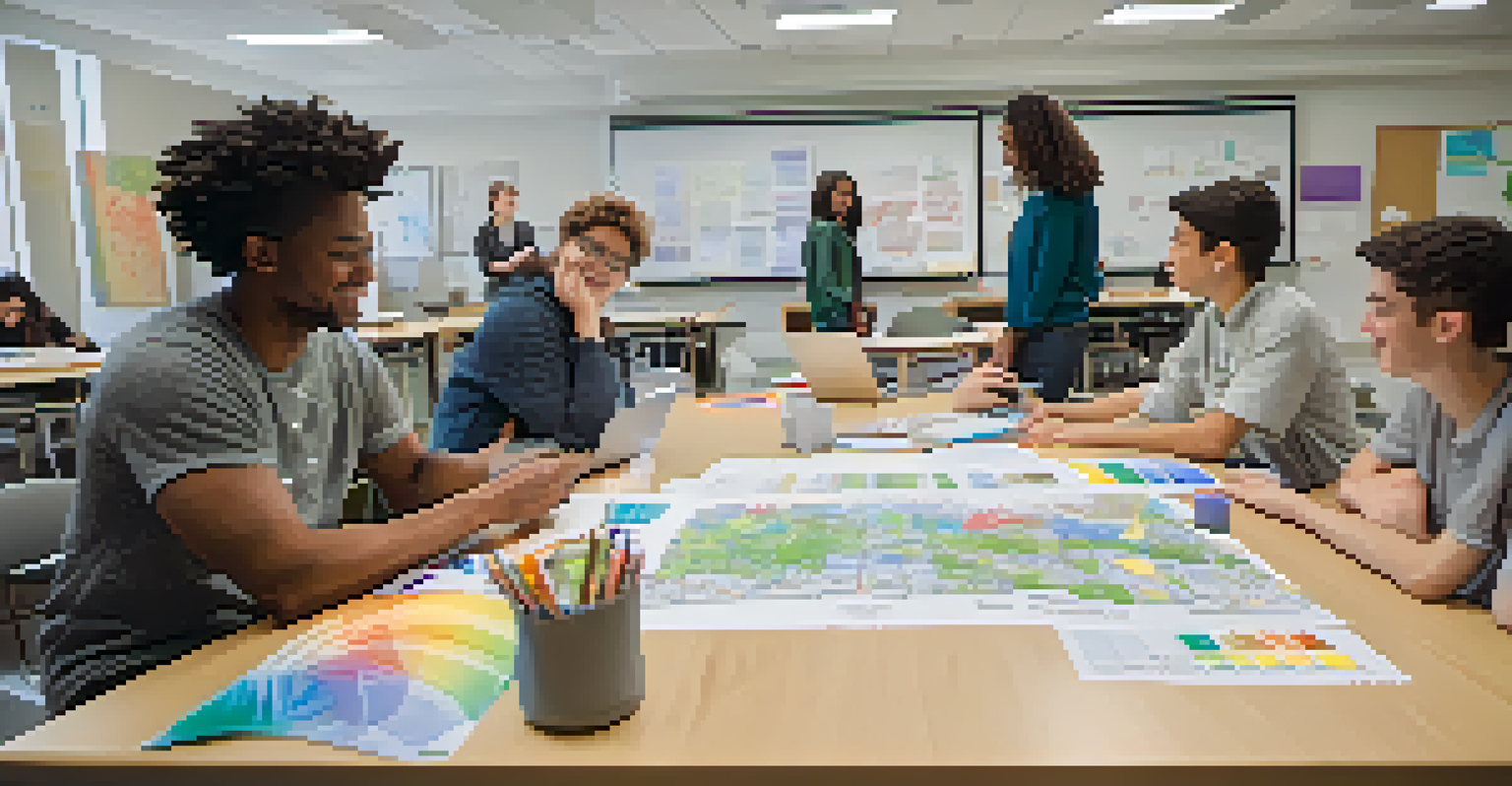Enhancing Learning through Community Engagement at MSU

The Importance of Community Engagement in Education
Community engagement plays a crucial role in enhancing the educational experience. It connects students with real-world challenges, fostering a deeper understanding of their studies. By engaging with local communities, students can apply theoretical knowledge in practical settings, making learning more relevant and impactful.
Education is not preparation for life; education is life itself.
At MSU, community engagement is not just an add-on; it's woven into the fabric of the educational process. This approach cultivates a sense of responsibility and civic awareness among students, encouraging them to contribute positively to society. It's about creating a two-way street where both students and communities benefit from shared experiences.
Moreover, community engagement helps develop essential skills like teamwork, problem-solving, and communication. These skills are invaluable in today’s workforce, where collaboration and adaptability are key. By working with diverse groups, students not only learn to appreciate different perspectives but also become more empathetic leaders.
MSU's Community-Engaged Learning Programs
MSU offers various programs that facilitate community engagement, allowing students to immerse themselves in meaningful projects. From service-learning courses to internships with local organizations, these opportunities bridge the gap between classroom learning and community needs. Students can choose projects that align with their interests and career goals, making engagement both personal and professional.

One standout initiative is the MSU Service-Learning program, which pairs students with community partners to address pressing social issues. This not only enriches the students' academic experience but also brings tangible benefits to the communities involved. For example, students may work on environmental sustainability projects that help local organizations while learning about ecological practices.
Community Engagement Enhances Learning
Engaging with local communities allows students to apply theoretical knowledge in real-world contexts, making education more relevant and impactful.
Through these programs, students gain hands-on experience that enhances their resumes and prepares them for future careers. They learn to navigate real-world challenges, develop project management skills, and build networks that can be beneficial long after graduation. Ultimately, these experiences foster a sense of belonging and commitment to the community.
Building Partnerships with Local Organizations
MSU actively seeks to build partnerships with local organizations, creating a symbiotic relationship that benefits both students and the community. These collaborations often lead to innovative projects that address community needs while providing students with valuable insights and experiences. By working together, MSU and these organizations can tackle issues more effectively than either could alone.
The best way to find yourself is to lose yourself in the service of others.
For instance, partnerships with non-profits allow students to engage in community service while applying their academic knowledge. This real-world experience enhances their learning and provides organizations with fresh perspectives and youthful energy. These collaborations often lead to creative solutions that might not have emerged in a traditional classroom setting.
Furthermore, these partnerships create a network of support for students, offering mentorship and guidance from experienced professionals. This connection helps students transition from the classroom to the workforce more smoothly, as they have already established relationships within their field. Such experiences can be transformative, igniting a passion for community service and leadership.
Fostering Cultural Competence Through Engagement
Engaging with diverse communities allows MSU students to cultivate cultural competence, an essential skill in today's globalized world. Through community projects, students encounter various cultures and perspectives, broadening their understanding and appreciation of diversity. This exposure helps them become more adaptable and open-minded individuals.
Cultural competence not only enhances personal growth but also enriches professional capabilities. Employers increasingly seek individuals who can work effectively in diverse environments. By participating in community engagement initiatives, MSU students develop the ability to communicate and collaborate with people from different backgrounds, making them more attractive candidates in the job market.
MSU Offers Meaningful Programs
MSU provides various community-engaged learning programs, such as service-learning and internships, that foster personal and professional growth for students.
Additionally, these experiences encourage students to reflect on their own identities and biases. This self-awareness is crucial for personal development and helps foster a more inclusive society. By learning to appreciate and respect different viewpoints, students are better equipped to navigate a complex and interconnected world.
Student Experiences: Personal Growth Through Service
Many MSU students report that their community engagement experiences have profoundly impacted their personal growth. Engaging with local communities encourages them to step outside their comfort zones and tackle real-world issues. This journey often leads to increased confidence and a clearer understanding of their values and goals.
For instance, students involved in community service projects often find a renewed sense of purpose and direction. They discover passions they never knew they had, whether it's advocating for social justice, supporting education initiatives, or working on environmental conservation. These experiences can shape their career paths and personal lives long after they graduate.
Moreover, the relationships built during community engagement can lead to lifelong friendships and networks. Students often bond over shared challenges and triumphs while working together on projects. These connections provide a support system that enhances their overall college experience and fosters a sense of belonging within the MSU community.
The Role of Faculty in Community Engagement
Faculty members at MSU play a pivotal role in promoting community engagement within their courses. By integrating service-learning components into their curriculum, professors encourage students to connect academic concepts with real-world applications. This not only enriches the learning experience but also inspires students to take an active role in their communities.
Moreover, faculty often serve as mentors, guiding students through their community engagement projects. Their expertise and experience can help students navigate challenges, ensuring that their efforts are both meaningful and impactful. This mentorship fosters a collaborative learning environment where students feel supported and encouraged to explore their interests.
Partnerships Foster Mutual Benefits
Collaborations between MSU and local organizations create a symbiotic relationship that enhances both student learning and community development.
Additionally, faculty engagement in community projects helps strengthen the university's ties with local organizations. When professors actively participate, they can identify community needs and align academic resources to address them. This interaction creates a feedback loop that continuously enhances both the educational experience and community outcomes.
Measuring the Impact of Community Engagement
To understand the effectiveness of community engagement initiatives, MSU actively measures their impact on both students and the community. Through surveys, feedback sessions, and assessments, the university gathers data to evaluate the outcomes of various programs. This information helps refine existing initiatives and develop new strategies to enhance engagement.
For students, measuring impact often involves reflecting on personal growth, skill development, and the overall learning experience. By assessing these outcomes, students can articulate their growth and the value of their community involvement. This reflection not only benefits their academic journey but also prepares them for future endeavors.

On a broader scale, measuring community impact helps MSU demonstrate its commitment to social responsibility and civic engagement. By showcasing positive outcomes and success stories, the university can attract more students and partnerships, further enhancing its community engagement efforts. This cycle of evaluation and improvement ensures that both students and the community continue to benefit from these initiatives.